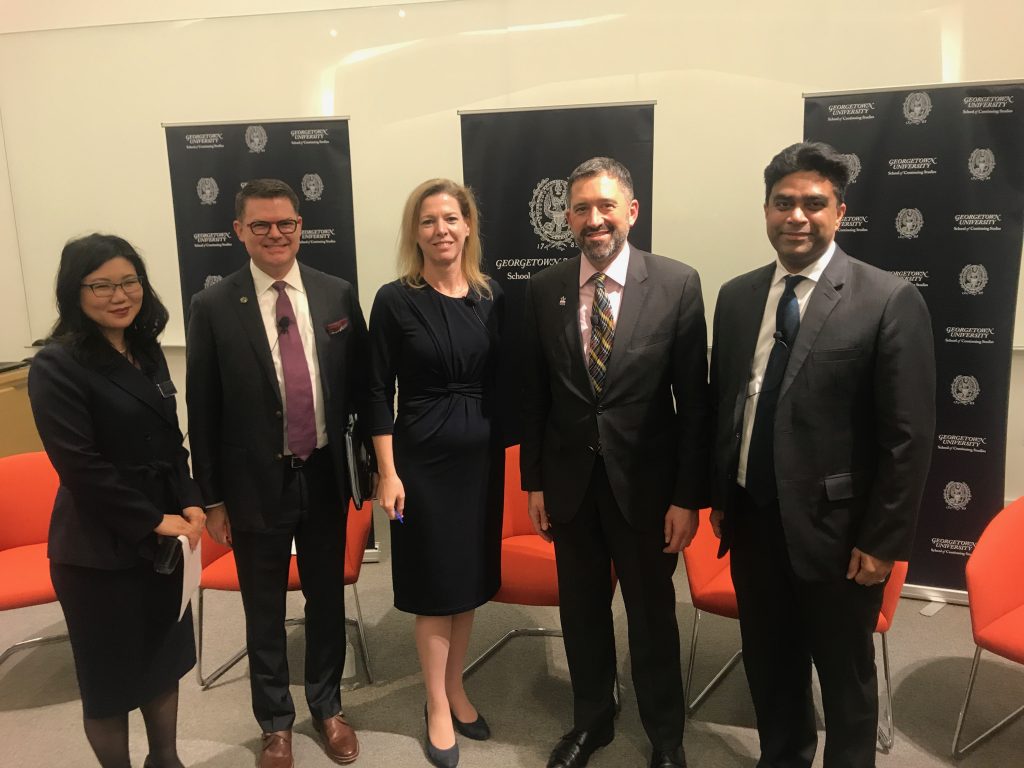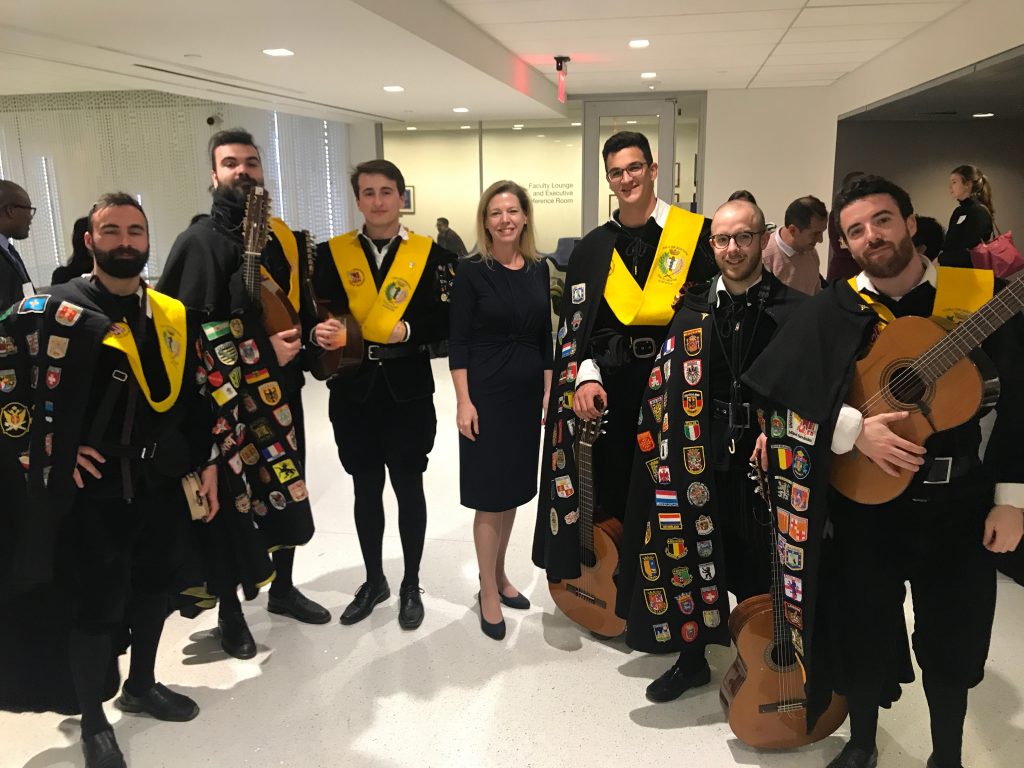
Earlier this year SCS convened an expert panel to explore how higher education professionals have a responsibility to promote global mindedness and prepare future global citizens. Titled “Global Citizenship in Higher Education,” the panel looked in depth at pressing issues that impact the ability of universities to effectively extend their mission to the global community. In particular, turbulent politics, nationalistic rhetoric, and the tightening of national borders all challenge the promise of educating students to become global citizens. The panel included global education leaders from Georgetown, including SCS Dean Dr. Kelly Otter, Dr. Stephanie Kim, Faculty Director for the Master’s in Higher Education Administration, and Amol Dani, Vice President and Chief Financial Officer of Georgetown’s Main Campus. Additional experts, Dr. John Lucas, President and Chief Executive Officer for International Student Exchange Programs, and Dr. Alfred Boll, Branch Chief for EducationUSA of the U.S. Department of State, provided educational perspectives from outside of Georgetown.
The discussion addressed some of the ways in which encouraging the formation of globally active citizens is a unique and defining feature of Jesuit educational institutions. Dean Otter called direct attention to this connection with Jesuit values in her remarks about how SCS approaches global education. Otter focused on four areas: global humanity, global society, global economy, and global workforces and the need for integration of these categories. Otter noted that effectively serving global education goals requires an awareness and sensitivity to the diversity of local contexts in which students learn. This awareness, which stems from a Jesuit worldview, invites educators to be conscious of their own biases, and inevitably leads to more complexity in the delivery of globally focused education programs. Otter welcomed the complexity as a responsibility of Jesuit education: “We need to listen, we need to observe, and we need to be willing to take on the challenges of those students, those faculty, those communities, those complex issues in various parts of the world.” SCS has committed to such locally sensitive global awareness, evident in a range of global programs and in a student body that is almost 13 percent international, representing approximately 90 countries.

The Jesuits as a global order have articulated a vision of global citizenship that links closely to some of the ideas that emerged in the panel. In a July 2018 meeting in Spain to inaugurate a new international body, the International Association of Jesuit Universities, Jesuit Superior General Arturo Sosa described the Jesuit university as a “source of reconciled life.” Sosa went on to describe global citizenship as a core component of Jesuit education, leading students to greater understanding of human diversity and commitment to the service of others:
Educating people for world citizenship involves recognizing diversity as a constitutive dimension of a full human life. This means experiencing cultural diversity as an opportunity for the enrichment of human beings … [Global citizenship] is one of the constituting dimensions of the individual, which we seek to foment and support during the educational process. It is also necessary in order to lay down the conditions to be able to listen to the call to provide a public service as a personal commitment.
Fr. Arturo Sosa, Superior General of the Jesuits
Sosa reinforced the Jesuits’ centuries-old commitment to global education, which Georgetown manifests in its own globally-engaged tradition of education. This long-standing commitment now entertains new challenges in light of the complexities of modern life. In the midst of a technologically-enabled digital revolution around the world, how do we remain focused on the local and global mission of Jesuit universities? As the panel conversation made clear, this question will continue to animate the work of SCS.
For more information about Georgetown’s commitment to global education, see the brochure “Georgetown University: Academic Excellence in Service to the World.”
